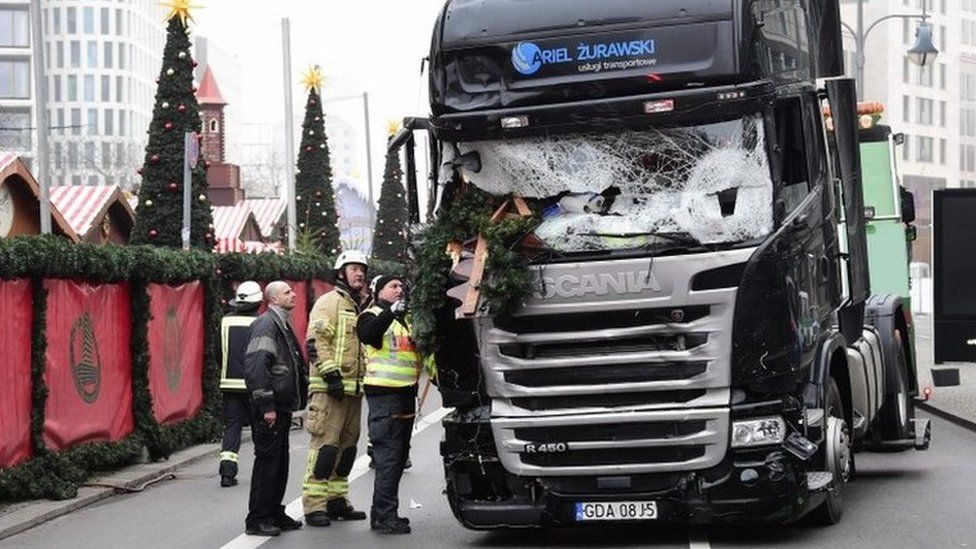Berlin truck attack: Tunisian released after questioning
- Published

Twelve people died in the lorry attack
German police have released a 40-year-old Tunisian man who had been a suspected accomplice of the Berlin Christmas market assailant.
German state prosecutors said they had found the man's number on the phone of Anis Amri, who killed 12 people by ramming a lorry into market shoppers.
Amri was shot dead by police in Milan early last Friday, four days on from the attack. The 24-year-old Tunisian had opened fire, wounding one.
Amri had links to known Islamists.
German prosecutors say a video in which Amri pledges allegiance to so-called Islamic State (IS) is genuine.
Government officials have said the lorry's automatic braking system may have prevented the loss of more lives on 19 December.
The system kicks in when it senses an impact and this may have cut the hijacker's rampage short.
Frauke Koehler, spokesperson for the federal prosecutor's office, said "further investigations revealed that the detained man was not a contact person of Anis Amri's, therefore he had to be released".
She said the pistol found on Amri when he was shot dead by Italian police last week had the same calibre as the one that killed the Polish driver whose truck Amri hijacked.
Lukasz Urban, 37, was killed by a gunshot to the head - apparently before the lorry was driven into the Christmas crowd at Breitscheidplatz, in central Berlin. His body was found in the cabin, after Amri had fled.
Authorities across Europe are trying to piece together Amri's movements after the attack
Italian Prime Minister Paolo Gentiloni told a news conference there was no evidence that Amri had any "particular networks" in Italy.
He was probably radicalised after arriving in Italy in 2011, Mr Gentiloni said.
Investigators are trying to piece together Amri's movements after the Berlin attack, when he was subject to a European arrest warrant.
There are indications that he travelled to Nijmegen in the Netherlands on 21 December and then took an overnight bus from Amsterdam to Lyon in France.
Then he took a train to Chambery in the French Alps, changed trains, and reached Milan. He was stopped by police in the early hours of 23 December near Milan's Sesto San Giovanni station.